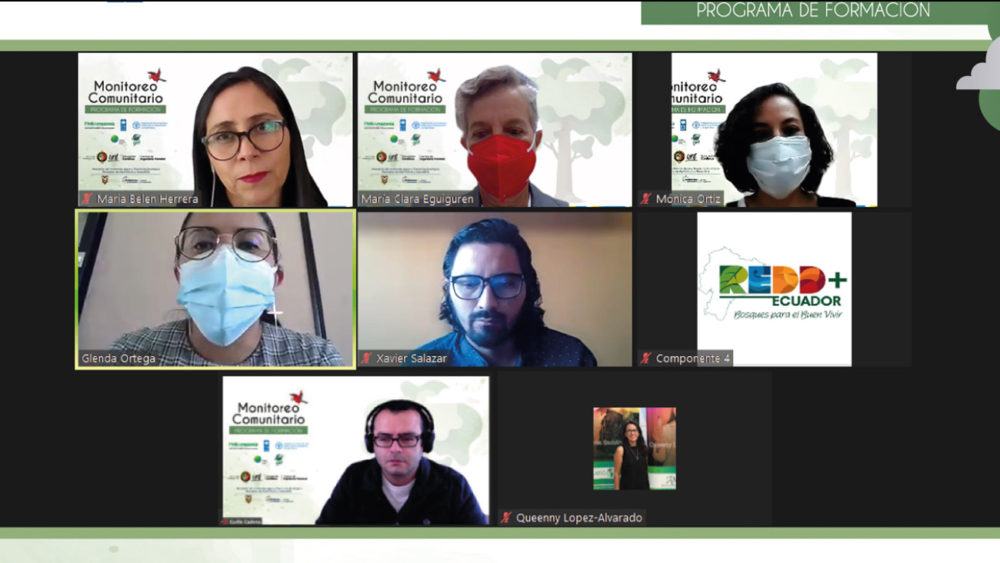Training in Community Monitoring for MAATE Technicians and Local Governments
Forty-nine participants were trained in various topics related to Participatory Community Monitoring as part of a training program organized by the Ministry of Environment, Water and Ecological Transition (MAATE), with technical assistance from the Food and Agriculture Organization of the United Nations (FAO), within the framework of PROAmazonía.
The Ministry of Environment, Water and Ecological Transition (MAATE), with technical assistance from the Food and Agriculture Organization of the United Nations (FAO), within the framework of the Amazon Integrated Program for Forest Conservation and Sustainable Production (PROAmazonía), implements a Community Monitoring model that promotes the full and equal participation of women and men in the communities for information management and decision making on the management and conservation of natural resources in their communities. It also contributes to the National Forest Monitoring System, interacting with national and local stakeholders to strengthen forest governance processes.
As part of the implementation of the Community Monitoring model, a five-week capacity building process was carried out starting on July 7, during which participants learned about the experiences of our region, where different community monitoring mechanisms and proposals have been implemented. For FAO, territorial governance is a fundamental tool for the conservation and sustainable management of forests. The workshop was aimed at technical personnel from MAATE’s Zonal Directorates, the Ministry of Agriculture and Livestock, Decentralized Autonomous Governments (parish, cantonal and provincial levels), PROAmazonía, members of the REDD+ Working Table and the Confederation of Indigenous Nationalities of the Ecuadorian Amazon (CONFENIAE).
The experiences presented during these workshops showed that in Ecuador and in the region there are important efforts aimed at the conservation and sustainable management of forest resources. These actions have a fundamental component: the committed participation of communities, peoples and nationalities that live from the forest and seek its sustainability. For them, the exchange of experiences is the most appropriate way to “learn by doing,” reminiscent of Paulo Freire and his liberating education.
The course, with a total of 24 hours, which was taught in five modules, including assignments and practical exercises, allowed participants to learn about monitoring, community forest surveillance, forest monitoring, the National Forest Assessment process. The generalities for the sustainable use of non-timber forest products (NTFPs) and the use of tools, applications and instruments to facilitate the collection of data that are compatible with the information needs of the State for a better appreciation of the reality of the forests were also reviewed.
For this training, the MAATE learning platform was used and the participants’ learning was evaluated through practical exercises. The training plan had the academic endorsement of the National University of Loja, the institution with which FAO Ecuador signed the cooperation agreement.
FAO has provided technical assistance to the Ministry of Environment, Water and Ecological Transition for this course. As part of the follow-up actions, a series of workshops will be implemented in the territory, in which the knowledge will be replicated in a practical way, so that the communities involved can safeguard their territories and gather information that will allow MAATE to determine the state of the forests and thus be able to make better decisions and implement public policies that guarantee their sustainable management.

Photograph: FAO
Description: Participatory Community Monitoring trainings were conducted over five weeks to more than forty participants.


Photograph: FAO
Description: Mónica Ortiz – Community Monitoring Specialist – FAO Project – PROAmazonía
Author:
María Clara Eguiguren – Capacity Building and Communication Technician – FAO project – PROAmazonía
 Español
Español English
English

Comments are closed.